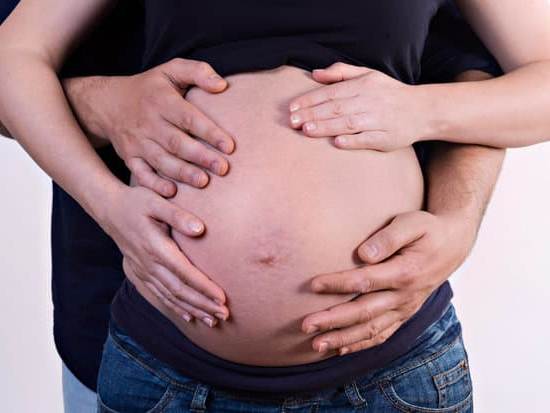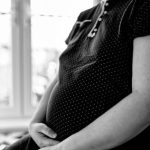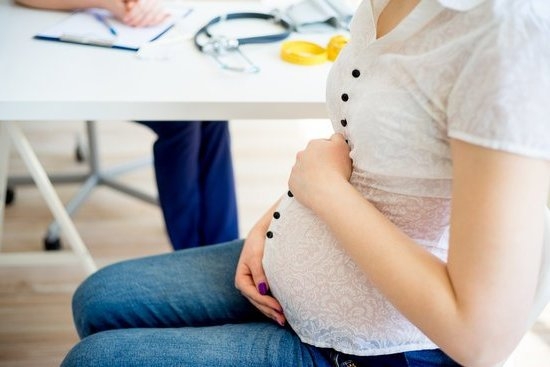Have you ever wondered how soon can you feel pregnancy symptoms after ovulation? Understanding the concept of ovulation and the process of conception is essential to grasp the timeline of early pregnancy symptoms. Ovulation, which is the release of an egg from the ovary, plays a crucial role in determining when conception can occur. Once fertilization takes place, the body undergoes various changes that can result in early signs of pregnancy.
For many women, tracking ovulation is key to maximizing their chances of conception. Ovulation typically occurs around 12-16 days before the start of a menstrual period, making this window the most fertile time for getting pregnant. It is during this phase that an egg must be fertilized by sperm to initiate pregnancy. Understanding when ovulation happens can help individuals gauge when they might begin to experience pregnancy symptoms if conception occurs.
After conception, one of the first signs that may indicate pregnancy is implantation bleeding, which can occur as early as 6-12 days post-ovulation. Other common early pregnancy symptoms include fatigue, breast tenderness, and nausea. However, it’s important to note that these symptoms can vary widely among individuals and may not always be experienced by everyone. Confirming pregnancy through a reliable test is ultimately the most accurate way to determine one’s status and seek appropriate medical care.
Ovulation and Pregnancy
After ovulation, if an egg is fertilized by a sperm cell, conception occurs. It typically takes place in the fallopian tube and then the fertilized egg travels to the uterus where it implants itself into the uterine lining. This process marks the beginning of pregnancy. But how soon can you feel pregnancy symptoms after ovulation?
It is important to note that pregnancy symptoms can vary from woman to woman. Some may start experiencing signs as early as a week after conception, while others may not notice any changes for several weeks. Early signs like implantation bleeding, which occurs when the fertilized egg attaches to the uterine wall, can happen around 6-12 days post-ovulation. Fatigue and nausea are also common symptoms that some women may start feeling within the first few weeks following conception.
| Timing Post-Ovulation | Pregnancy Symptoms |
|---|---|
| 1 week | Implantation bleeding |
| 2-3 weeks | Fatigue and nausea |
Remember that individual hormone levels, sensitivity to symptoms, and other factors like stress or underlying health conditions can also impact when and how intensely pregnancy symptoms manifest. If you suspect you might be pregnant or are actively trying to conceive, consulting with a healthcare provider for personalized guidance and information on testing options is recommended.
Early Pregnancy Symptoms
During the early stages of pregnancy, a woman’s body undergoes various changes as it prepares for the growth and development of a new life. These changes can manifest as symptoms that indicate the beginning of pregnancy. One of the most common early signs is implantation bleeding, which occurs when the fertilized egg attaches itself to the uterine wall.
This light spotting may be mistaken for a light period by some women. Here are some other common early pregnancy symptoms that may occur after ovulation:
1. Fatigue: Feeling excessively tired and lethargic is a frequent complaint among pregnant women in the early weeks of pregnancy. This can be attributed to hormonal changes, increased metabolism, and the body working overtime to support the developing fetus.
2. Nausea: Known as morning sickness, nausea and vomiting are classic signs of pregnancy that can start as early as two weeks after conception. While this symptom is commonly associated with mornings, it can actually occur at any time of day.
3. Breast Changes: Swollen or tender breasts can be one of the earliest indicators of pregnancy for some women. The hormonal fluctuations in early pregnancy can cause breast tenderness, sensitivity, and even darkening of the areolas.
It is important to note that not all women experience these symptoms or may have varying degrees of severity. Some women may also mistake these signs for premenstrual symptoms due to their similarities. If you suspect you may be pregnant based on these symptoms, it is advisable to take a home pregnancy test or consult with a healthcare provider for confirmation and guidance on next steps.
Medical Confirmation
Understanding Pregnancy Symptoms
Pregnancy symptoms can vary from woman to woman, but some common signs include implantation bleeding, fatigue, nausea, breast tenderness, and frequent urination. It is essential to note that these symptoms can also be attributed to other factors such as hormonal changes or stress. Therefore, experiencing these signs does not necessarily confirm pregnancy.
Confirmation Through Pregnancy Test
A pregnancy test is the most accurate way to confirm pregnancy. These tests detect the hormone human chorionic gonadotropin (hCG) in the urine or blood, which is produced by the placenta after a fertilized egg attaches to the uterine lining. Generally, it is recommended to take a pregnancy test a few days after a missed period for the most reliable results.
How Soon Can You Feel Symptoms After Ovulation?
The timing of when you may start feeling pregnancy symptoms after ovulation can vary among women. Some women report experiencing symptoms as early as a week after conception, while others may not notice any signs until later in their first trimester. Factors such as individual hormone levels and sensitivity to symptoms play a role in how soon these signs appear. It is important to remember that every pregnancy is different, and each woman’s experience may vary.
How Soon Can You Feel Symptoms After Ovulation
After ovulation, many women eagerly wait to see if they might be pregnant. One common question that arises during this time is, “How soon can you feel pregnancy symptoms after ovulation?” The answer varies from woman to woman and can depend on a variety of factors. Here is a general timeline of when pregnancy symptoms may start to appear after ovulation:
- 1-2 Weeks After Ovulation: In the earliest stages of pregnancy, around 1-2 weeks after ovulation, some women may experience implantation bleeding or spotting. This light bleeding can occur when the fertilized egg implants itself into the uterine lining.
- 3-4 Weeks After Ovulation: As the pregnancy progresses, fatigue may start to set in around 3-4 weeks after ovulation. Hormonal changes and an increase in progesterone levels can contribute to feelings of tiredness and exhaustion.
- 4-6 Weeks After Ovulation: Nausea and morning sickness are classic symptoms of early pregnancy that typically begin around 4-6 weeks after ovulation. Some women may also experience heightened sensitivity to smells during this time.
It’s important to note that every woman’s body is different, so not everyone will experience these symptoms at the same time or with the same intensity. Factors such as individual hormone levels, overall health, and sensitivity to symptoms can all play a role in when and how soon pregnancy symptoms manifest.
- Some women may notice subtle signs within days of conception, while others may not feel any different until several weeks later.
- If you suspect you might be pregnant and are experiencing symptoms like those mentioned above, it’s advisable to take a home pregnancy test for confirmation.
- If you have concerns about your fertility or menstrual cycle, it’s always best to consult with a healthcare professional who can provide personalized guidance based on your unique circumstances.
Factors Affecting Symptom Onset
When it comes to the timeline of how soon you can feel pregnancy symptoms after ovulation, it’s important to consider the individual differences in hormone levels and sensitivity to symptoms. While some women may start experiencing signs of pregnancy as early as a week after ovulation, others may not notice any changes until several weeks later. This variation is influenced by factors such as overall health, stress levels, and genetic predispositions.
Hormone levels play a crucial role in the onset of pregnancy symptoms after ovulation. After conception occurs, the body starts producing human chorionic gonadotropin (hCG), commonly known as the pregnancy hormone. The levels of hCG rise rapidly in the early stages of pregnancy and can trigger symptoms like fatigue, breast tenderness, and frequent urination. Some women may be more sensitive to these hormonal changes than others, leading to a quicker recognition of pregnancy symptoms.
Aside from hormone levels, individual sensitivity to symptoms also plays a significant role in determining how soon one can feel pregnant after ovulation. Women who are more attuned to their bodies or have been pregnant before may notice subtle changes earlier than those who are less in tune with their physical sensations. Factors like age and overall health can also influence how pronounced and noticeable these early pregnancy symptoms are.
| Factors Affecting Symptom Onset | Individual Differences |
|---|---|
| Hormone Levels | Crucial for symptom onset |
| Sensitivity to Symptoms | Varies among individuals |
Real Experiences
Real Experiences of Early Pregnancy Symptoms
Many women start to wonder how soon they can feel pregnancy symptoms after ovulation, and personal stories often provide valuable insight into this question. One common early pregnancy symptom reported by women is implantation bleeding, which occurs when the fertilized egg attaches to the uterine lining. This light spotting can be mistaken for a very light period and typically occurs around 6-12 days after conception.
Personal Accounts of Fatigue and Nausea
In addition to implantation bleeding, many women also report feeling extreme fatigue and nausea shortly after ovulation. Some individuals have shared their experiences of feeling unusually tired even before they missed their period, attributing it to the changes happening in their bodies during early pregnancy. Nausea, commonly referred to as morning sickness, can also set in within weeks of conception for some women.
Individual Hormone Levels and Symptom Sensitivity
It is important to note that the timing of when pregnancy symptoms appear can vary greatly from person to person. Factors such as individual hormone levels, overall health, and sensitivity to symptoms all play a role in how soon someone may notice signs of pregnancy after ovulation. While some women may experience noticeable symptoms within days of conception, others may not feel anything until weeks later or even until after a missed period.
By sharing personal stories of individuals who felt pregnancy symptoms soon after ovulation, we gain a better understanding of the range of experiences that come with early pregnancy. These real accounts serve as a reminder that everyone’s body reacts differently to the process of conception and implantation. If you suspect you may be pregnant and are experiencing any unusual symptoms, it is always best to consult with a healthcare professional for personalized guidance.
Conclusion
In conclusion, understanding how soon you can feel pregnancy symptoms after ovulation is imperative for individuals trying to conceive or those who may suspect they are pregnant. The process of conception following ovulation can lead to early signs of pregnancy like implantation bleeding, fatigue, and nausea within a relatively short timeframe.
While some may experience these symptoms as early as a week after ovulation, it is essential to remember that each person’s body responds differently to the hormonal changes associated with pregnancy.
Factors such as individual hormone levels and sensitivity to symptoms can affect when these signs manifest themselves, making it crucial not to rely solely on symptom onset as an indicator of pregnancy. This is where medical confirmation through a pregnancy test becomes necessary to accurately determine whether conception has occurred. It’s important for individuals experiencing any potential pregnancy symptoms to consult with a healthcare professional for proper guidance and advice on next steps.
Overall, keeping track of ovulation cycles and being aware of early pregnancy symptoms can be helpful in recognizing the possibility of conception. By remaining informed about the timeline of symptom onset after ovulation and understanding the variables that may influence this process, individuals can better prepare themselves for the exciting journey ahead. Remember, consulting a healthcare professional is always the best course of action for obtaining accurate information tailored to your specific situation.
Frequently Asked Questions
How Soon Can You Tell if You Are Pregnant After Ovulation?
After ovulation, you can usually tell if you are pregnant about 10-14 days later through a pregnancy test. This is when the fertilized egg implants in the uterus and starts releasing hCG.
How Do You Know if an Egg Is Fertilized After Ovulation?
If an egg is fertilized after ovulation, it will travel down the fallopian tube to the uterus, where it will implant into the uterine lining. Once implanted, the body begins producing hCG hormone.
How Long After Conceiving Can You Feel Pregnancy Symptoms?
Pregnancy symptoms typically start to appear around 6-8 weeks after conception. However, some women may experience early signs like fatigue, nausea, or breast tenderness as early as a week after conception.

Welcome to my fertility blog. This is a space where I will be sharing my experiences as I navigate through the world of fertility treatments, as well as provide information and resources about fertility and pregnancy.





